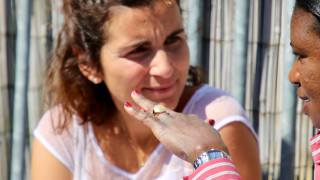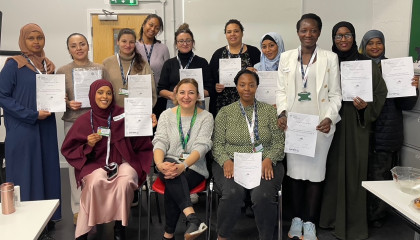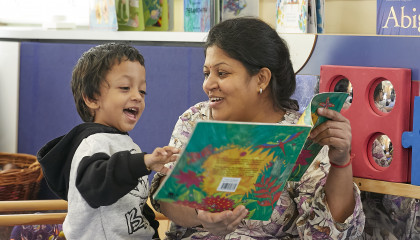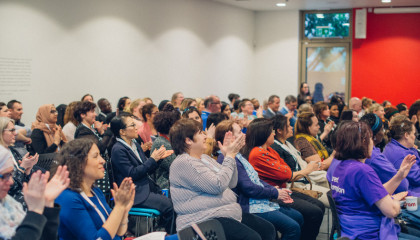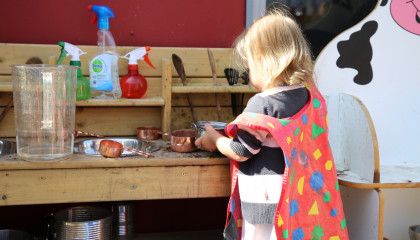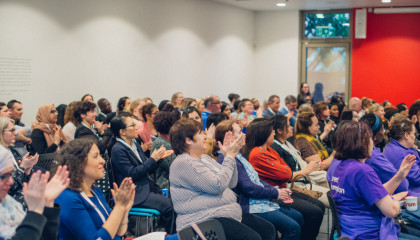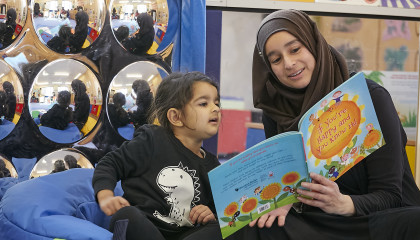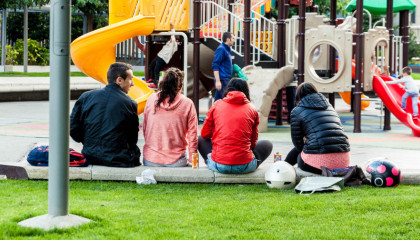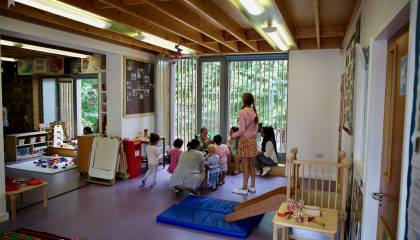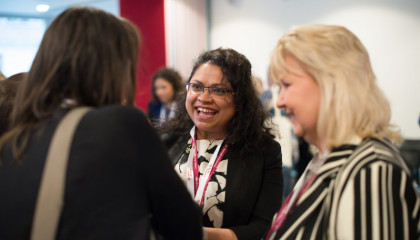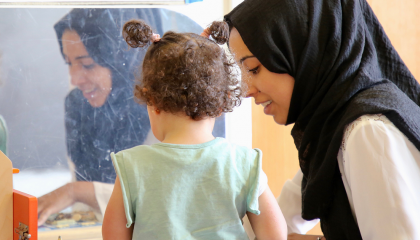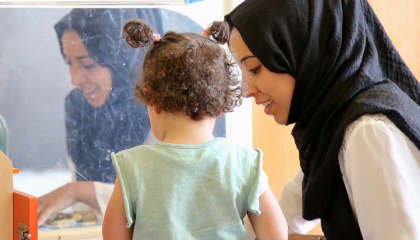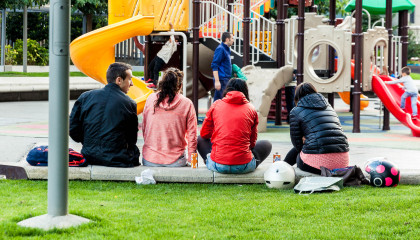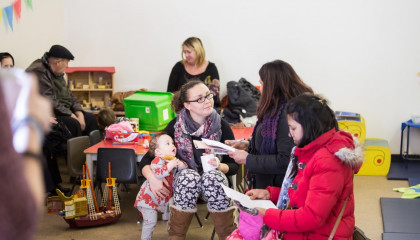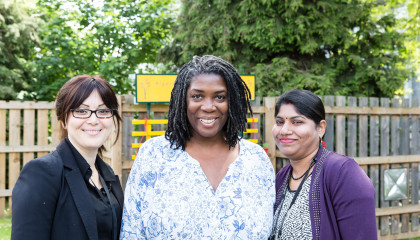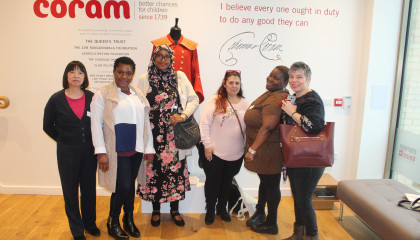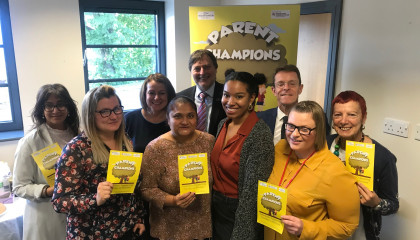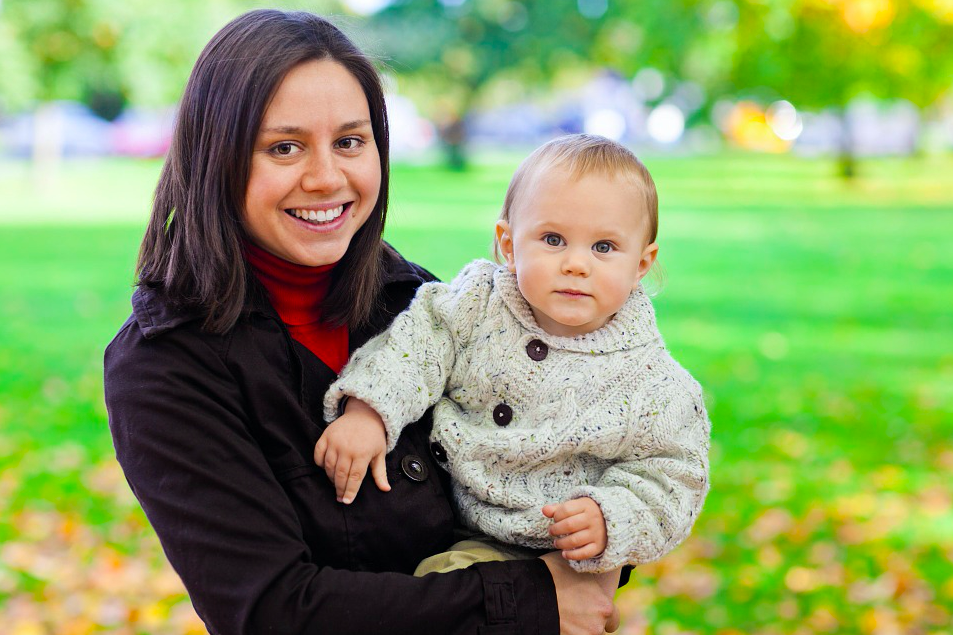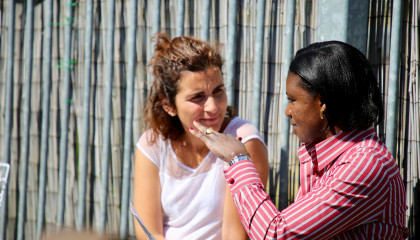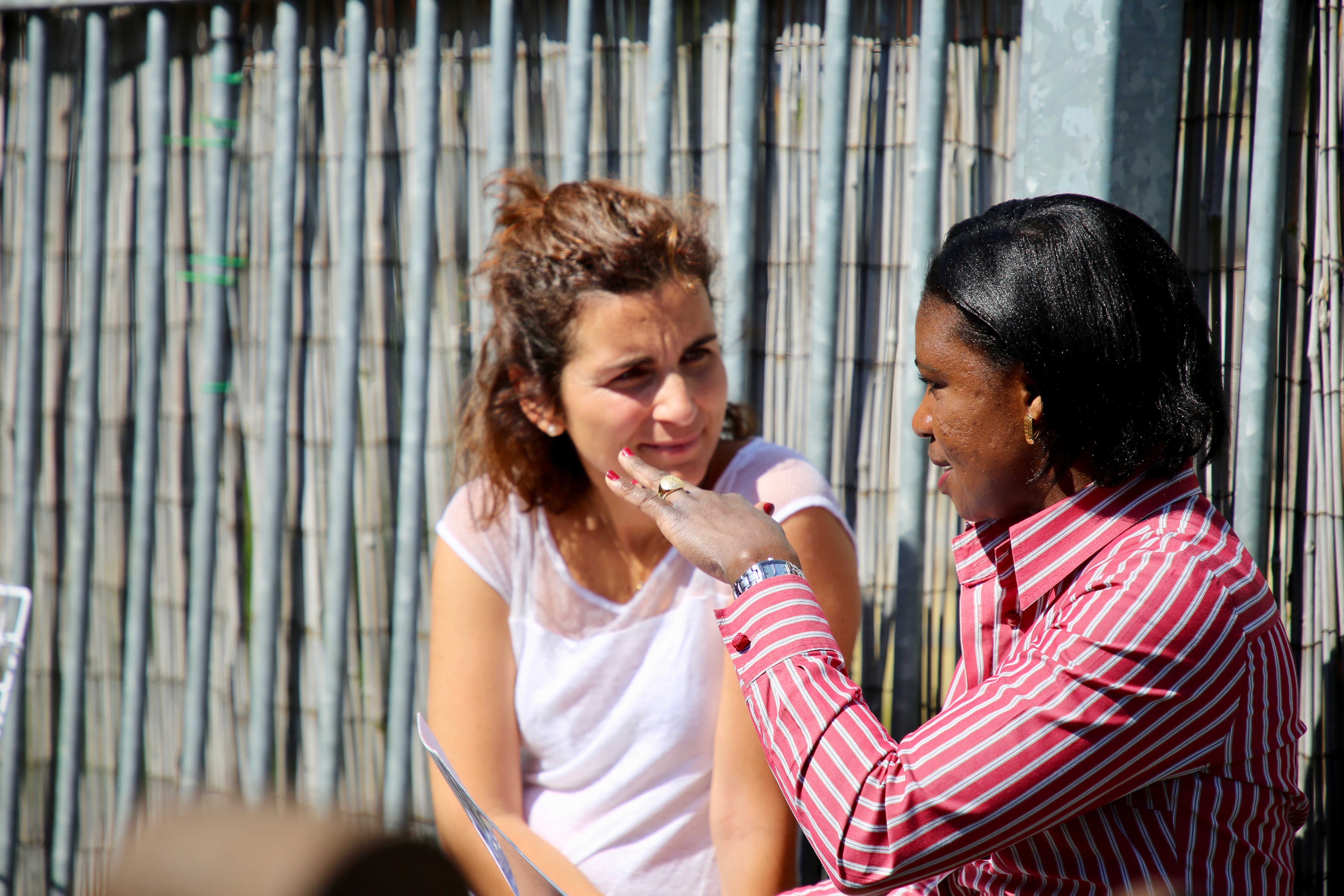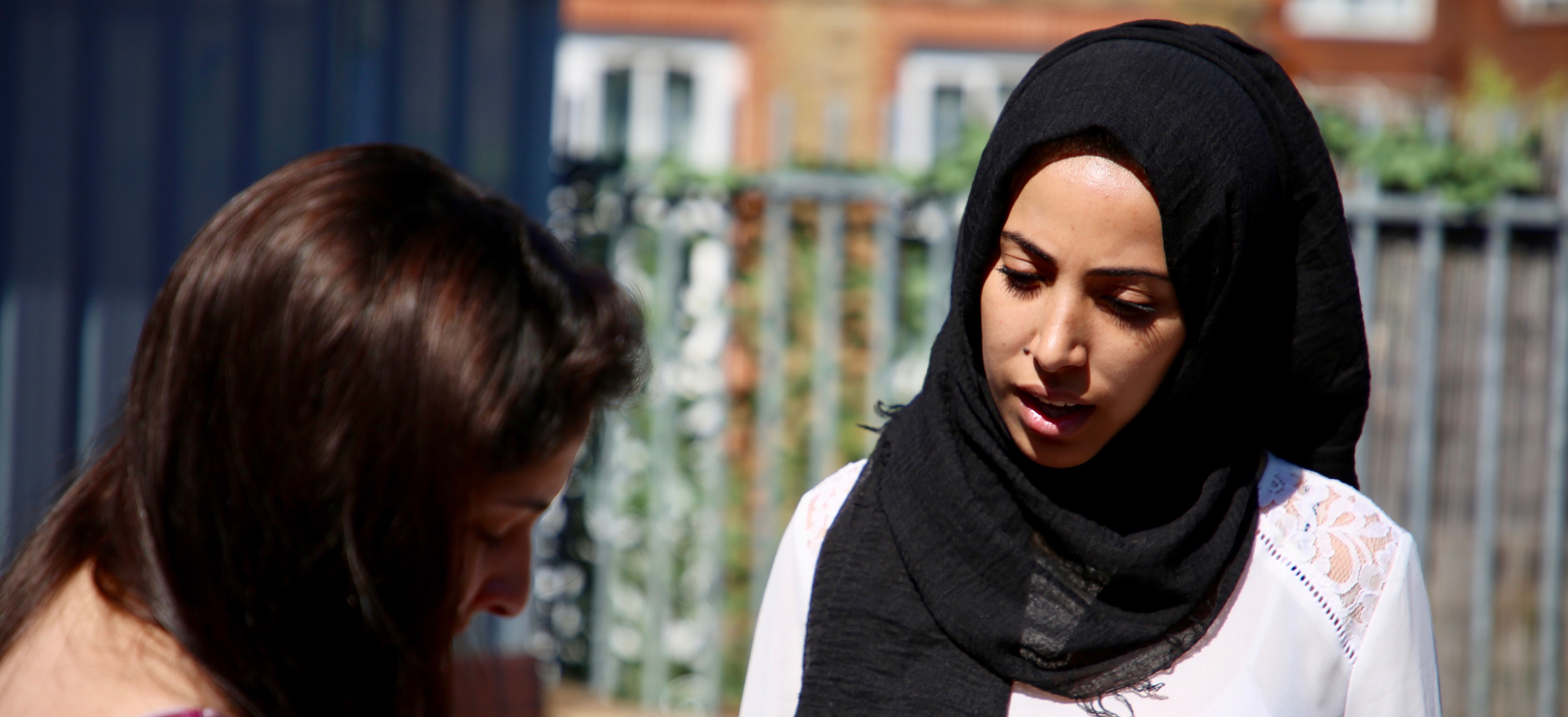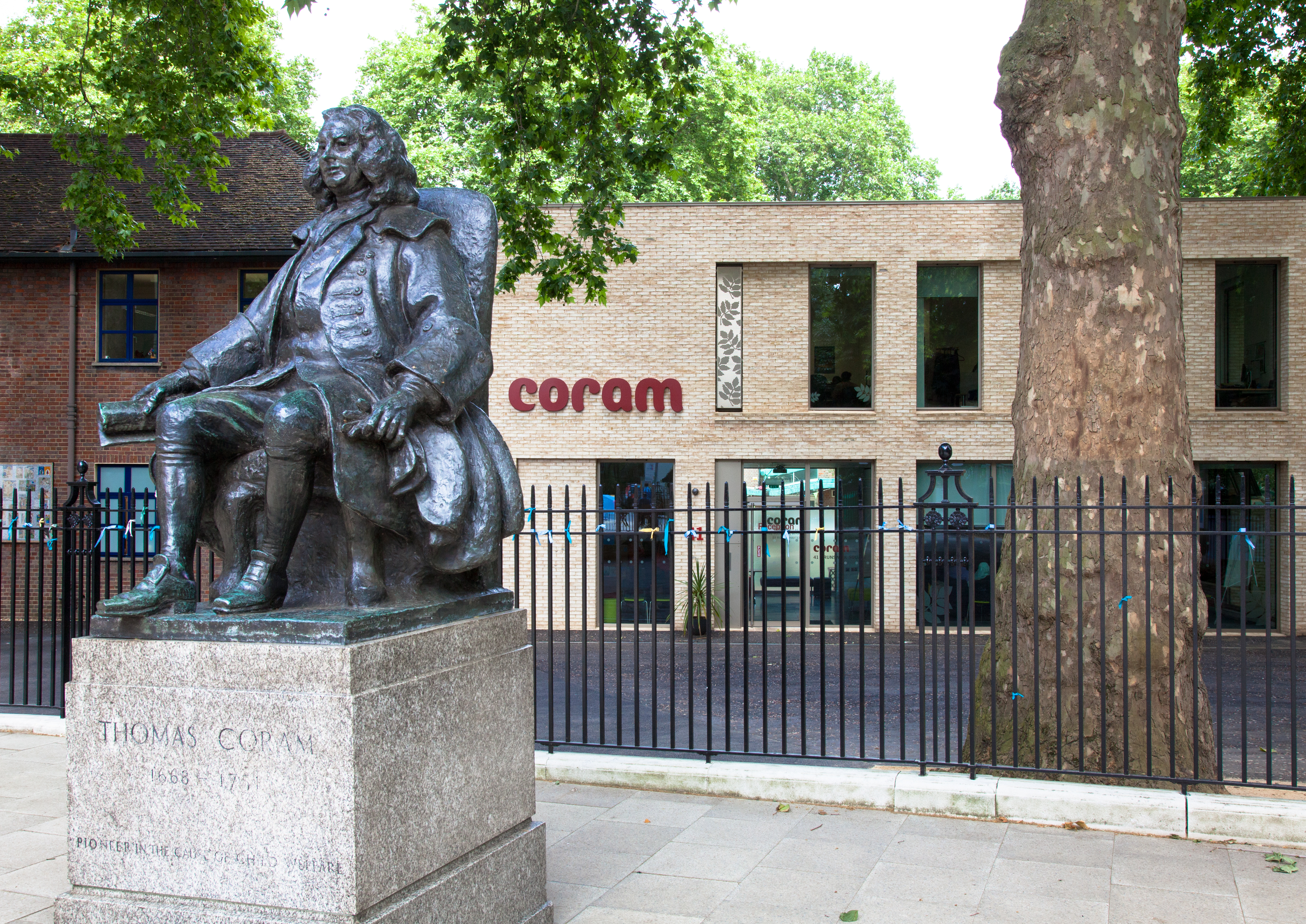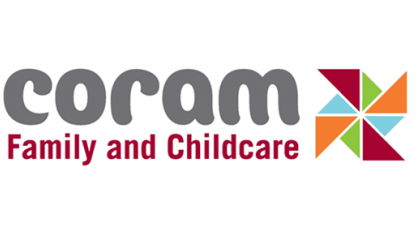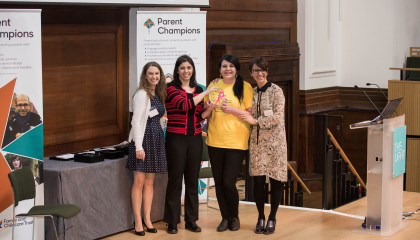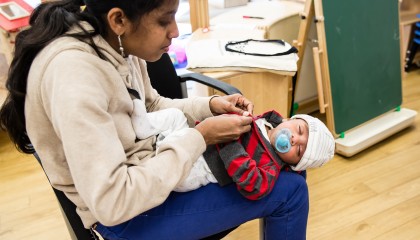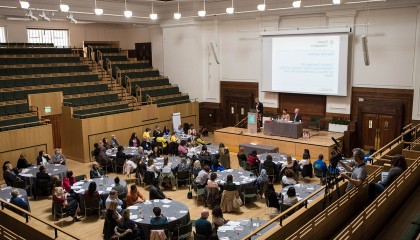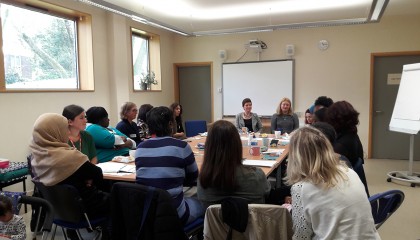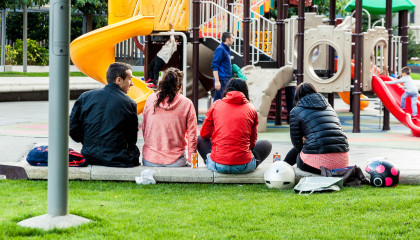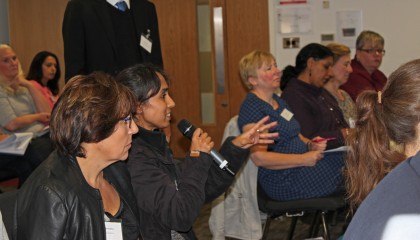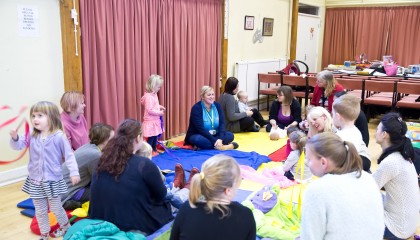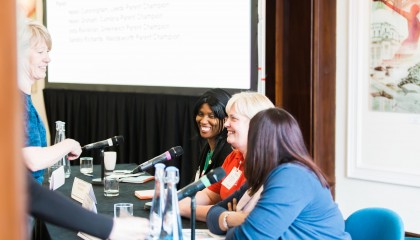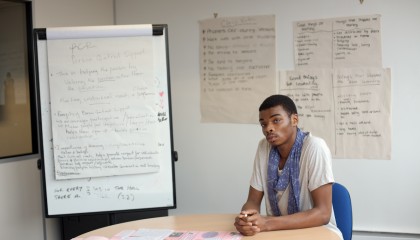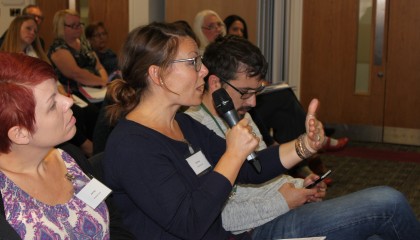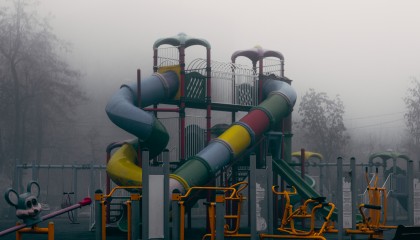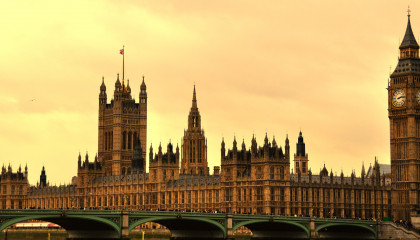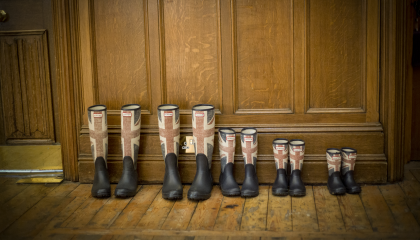You are here: International Women's Day 2022: The Childcare can help to advance women's opportunities and gender equality
8 March 2022
International Women’s Day presents a vital opportunity every year to call for action in the global fight for women’s rights. One key mission of this event is to celebrate the remarkable achievements of women all over the world and reflect on how we can all build a more inclusive future. At Coram Family and Childcare, we believe that affordable childcare is a pivotal (and often, overlooked) step in this important journey, giving women the freedom and flexibility they need to thrive.
Research illustrates that when childcare is prohibitively expensive, it is women who are more likely to miss out and suffer professionally. Back in 2019, we worked with Understanding Society to find out about what influences British mothers’ decisions about returning to work after having a baby. We found that women who lived in areas with higher childcare costs were less likely to return to work from maternity leave and that those trying to combine part-time work with caring responsibilities were particularly hard hit.
This barrier to work has a major influence in Britain’s persistent pay gap and has become known as the ‘motherhood penalty’. The COVID-19 pandemic has made the gendered impact of this situation particularly acute. A landmark survey conducted by Pregnant Then Screwed revealed that half of working mothers were unable to access the provision they needed to work. CEO Joeli Brearley commented: “This lack of childcare is destroying women’s careers, they are being made redundant, they are being forced to cut their hours, and they are being treated negatively all because they are picking up the unpaid labour.”
There is also new evidence that reveals that this impossible juggle has a detrimental impact on working mothers later in life. Recent analysis carried out by Scottish Widows to mark International Women’s Day 2022 finds that women aged between 65 and 74 years old will have saved half as much money for retirement as men the same age. Because women are more likely to work part-time and take more time out to bring up their families, a woman will need to work an extra 37 years to allow her to have a pension pot the same size as her male counterpart.
As the Conservative MP Caroline Nokes has warned, the failure to put access to childcare at the heart of government policy risks “sending women back to the 1970s” (quoted here in The Guardian). In a climate of eye-watering prices and patchy availability, it is worth revisiting this important decade in the struggle for women’s rights and reflecting on the original feminist calls for childcare.
At the beginning of the women’s liberation movement, childcare was central to the agenda. Over 52 years ago, on 27th February 1970, Ruskin College played host to the first ever National Women’s Liberation Conference in Oxford. Over 600 activists attended the event and issued four major demands to help advance women’s rights, including universal childcare provision:
- Equal pay
- Equal educational and job opportunities
- Free contraception and abortion on demand
- Free 24-hour nurseries
As women came together to organize, the men in attendance opened and ran the conference crèche. This group included the late, great cultural theorist Stuart Hall, famously photographed here looking after children in the crèche while their mothers attended workshops.
Across the pond in the USA, working mothers were calling for a similar set of interventions. The Women’s Strike for Equality (held in August 1970) made free, state-funded twenty-four-hour childcare a key demand. The historian Deborah Dinner has illustrated how feminist activists wrote with optimism about the social changes that publicly funded childcare would help realize: "feminist rights claims politicized the issue of childcare in ways that challenged the legal and social boundaries between family, market, and state. Rights consciousness enabled feminist activists to imagine alternative social and political realities as well as the place of childcare in those social transformations.”
Another striking example of the feminist battle for childcare in Britain can be seen in this clip from the 1977 film, 'Riddles of the Sphinx' (dir. Laura Mulvey), now available online courtesy of the British Film Institute. In this extract, a group of women discuss the various challenges they face finding suitable childcare in 70s London. One woman comments: “You’re lucky to get any kind of day-care, let alone one that suits you best! The TUC is in favour of free state nursery care for any parent who wants it. But we’re a long way from that.” Her friend suggests “we have to do something first if we want the unions to take it up. How can you make people see the connection between better wages and providing day-care?”
This call for free, 24-hour nurseries issued in the 1970s might appear overly ambitious and perhaps even utopian to us now, but it is a vital reminder of the original feminist vision for childcare. Returning to this pivotal feminist history should inspire us to fight against the current policy impasse in the childcare landscape and to demand more affordable provision that can help women and their children thrive. This is an opportunity to reimagine what might be possible and how to make that happen.
This International Women’s Day, we celebrate this fascinating activist history of working mothers and work towards building the vision they originally called for over fifty years ago. Looking after children, after all, is a collective responsibility and making the system fairer will help to advance women's opportunities. As Caitlin Moran has recently reminded us in Grazia, childcare is clearly "an all of humanity issue."

More from our blog
Sign up to our newsletter
Get the latest news, research and resources from Coram Family and Childcare

